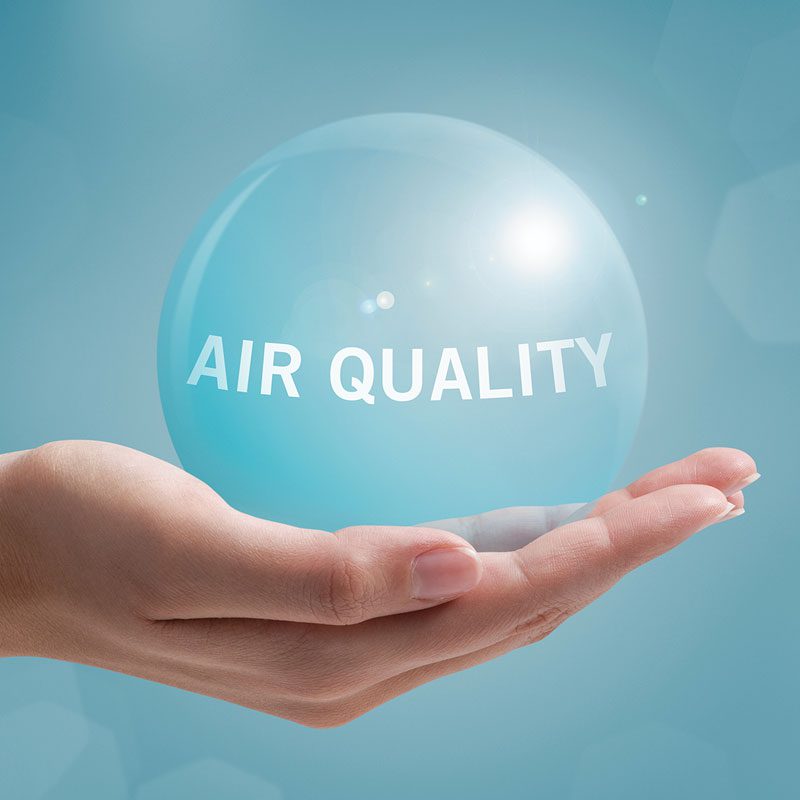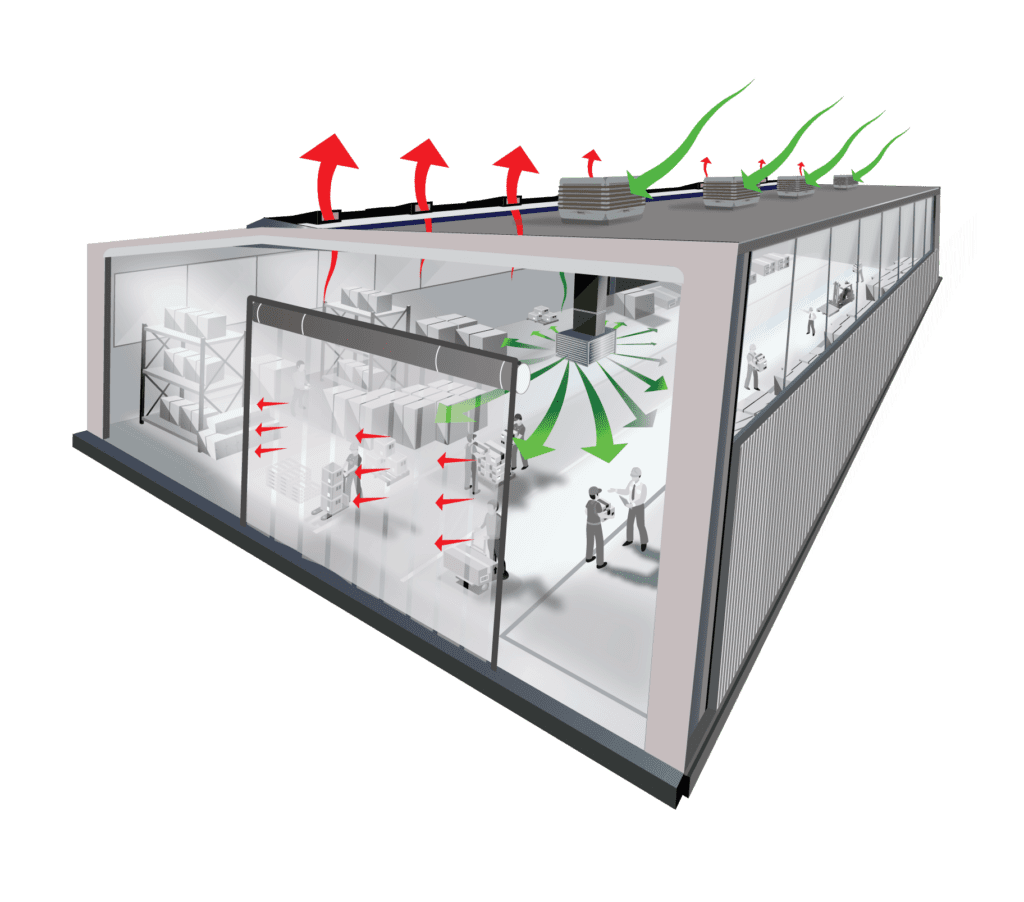We take everyone’s air very seriously,
...pure and simple!
Ventilation and Indoor Air Quality
Air quality is paramount for people’s well-being.
Australians spend between 80 to 100% of their time indoors, either at work or at home1, which demonstrates how important Indoor Air Quality (IAQ) is, when it comes to your own health and well-being, your ability to concentrate, learn, to be energetic and productive. Exposure to poor air quality for extended periods can lead to severe health problems for employees in any business.
Indoor Air Quality and ventilation is a high priority for buildings and work spaces under the building code, so it should also be taken seriously in the work or business environment, especially as it relates to the health and comfort of workers!
High levels of Carbon Dioxide (CO2), Volatile Organic Compounds (VOCs) and Particulate Matter (PM) such as dust and pollens are directly linked to illness, low productivity, drowsiness, headaches, irritation of the eyes, ears, nose, and throat, and triggering of asthma and allergies.
Where does CO2, VOCs, PM come from?
CO² is a greenhouse gas that is natural and harmless in small quantities, but as levels rise, it can be harmful, and affect productivity and sleep; most commonly produced indoors by human exhalation, manufacturing processes and in poorly ventilated spaces.
VOCs are a combination of chemicals, gases and odours emitted, found in everyday products in buildings such as glues and plastics in flooring materials, aerosol sprays, combustion, and paints, etc.
Particulate Matter (PM) isn’t just one contaminant or pollutant, it’s a range of particles from 0.1 micron – 200 micron. Suspended in the air and classified as biological and non-biological pollutants; it includes bacteria, viruses, dust, dirt, smog, smoke, soot, etc.

What you need to know about SAFER-Air™
What is SAFER-Air™?
100% continuous fresh, filtered outside air.
SAFER-Air™
SAFER-Air™ from our evaporative cooling technology is unmatched2 by technologies found in reverse cycle or traditional air conditioning systems, making it better for you and your colleagues. Here’s why:
- Removes CO2 in the building from re-breathed air.
Traditional air conditioners recirculate air, some of which has been re-breathed for hours, and maybe even days. This re-circulated air contributes to a build-up of CO2 in the space and CO2 is known to have adverse effects on human health and well-being. - Increases Oxygen levels for greater vitality and productivity.
Evaporative coolers continually cool and deliver 100% fresh, filtered, outside air that contains natural levels of oxygen, replenished through the whole building. - Removes other indoor pollutants.
Dust particles and most pollen grains are 10–70 μm in diameter which are filtered or flushed out of the building from the air delivered by our evaporative cooling products. - Maximum air ventilation.
Our evaporative coolers replace the stale air throughout the building. Creating a positive air pressure that pushes out stale air and pollutants through open windows and doors, while the system is cooling the whole space. - Perfect balance of air moisture.
Evaporative cooling naturally moisturises the air, so NO-ONE suffers from the dryness that comes from using traditional air conditioning. - Filtering air is only part of the solution.
Mechanically filtering or sterilising the air doesn’t address the problem of CO2 and rebreathed air, but evaporative cooling does! - No additional installation costs with zoning.
Evaporative cooling does not need to be zoned, blocking off areas to maximise operating efficiency and energy savings, so your whole building can be ventilated with fresh cool, filtered outside air, at any time of day or night.
Compare the Indoor Air Quality difference
Evaporative Cooling

Reverse Cycle Air Conditioning

1. Source: https://www.health.vic.gov.au/chiefhealth-officer/healthy-indoor-environments (2022)
2. Based on reverse cycle air conditioning technology recirculating air without inbuilt ventilation, contributing to CO2 proliferation and oxygen depletion in the enclosed space, while occupants are present. Requires outdoor air quality at the installed location of the Seeley International product to meet the minimum outdoor air quality standard, as defined by local and national government authority guidelines. Seeley International does not make any representations that Safer-AirTM has additional health benefits other than publicly documented information on fresh, filtered outside air.